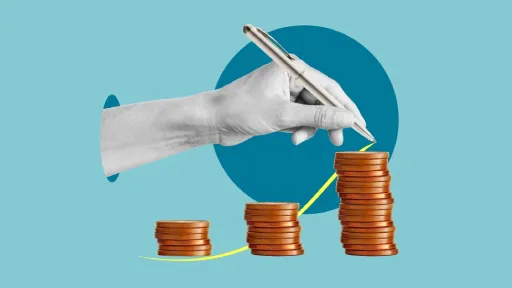Understanding how long does a late payment stay on credit report is crucial in today’s fast-paced financial world, where credit scores impact everything from loan approvals to interest rates. A single missed payment can tarnish your credit report, potentially affecting your financial opportunities for years. This article dives deep into the timeline of late payments on your credit report, explaining why this matters and how to manage your credit health effectively.
How Long Does a Late Payment Stay on Credit Report?
Late payments can stay on your credit report for a considerable amount of time, generally up to seven years. This duration is standardized by the Fair Credit Reporting Act (FCRA), which governs credit reporting practices in the United States. But exactly how does this timeline work, and what does it mean for your creditworthiness?
The 7-Year Rule Explained
When you miss a payment by 30 days or more and your creditor reports it, that late payment will typically remain on your credit report for seven years from the original missed payment date. This negative mark can reduce your credit score and remain visible to lenders, landlords, and others who review your credit history.
What Happens Over Time?
- First 30 Days: Your account is considered past due, but it may not yet be reported as a late payment unless the delay extends beyond 30 days.
- 30-59 Days Late: Late payment status usually gets reported to credit bureaus, and the damage to your credit score starts here.
- 60-89 Days Late: More severe impact and increased likelihood of collection actions.
- 90+ Days Late: The account may be sent to collections, which is another negative mark.
- Up to 7 Years: This late payment will legally stay on your credit report, gradually losing its negative impact as time passes.
Factors Influencing the Duration of Late Payments on Your Credit Report
Even though the general rule is seven years, several factors can influence how long a late payment affects your financial record:
- Type of Account: Different types of credit (credit cards, mortgages, student loans) follow the same seven-year rule, but some lenders report late payments differently.
- Severity of the Late Payment: A payment 30 days late has less impact than a payment that is 90 or more days late or multiple consecutive missed payments.
- Credit Bureau Practices: While all major credit bureaus adhere to the FCRA, reporting timeliness and updates can vary.
- Disputes and Corrections: If you find errors in your credit report, disputing them can potentially shorten or remove inaccurate late payments from your report.
Does the Late Payment Time Reset if You Miss Additional Payments?
If you continue to miss payments on the same account, the seven-year clock does not reset with each new late payment. Instead, the entire negative history of that account will be removed seven years after the original delinquency date, not the last missed payment. This is important to understand, as continuous missed payments can deepen the negative effects but won’t prolong their report duration indefinitely.
How to Minimize the Impact of Late Payments on Your Credit
Knowing how long does a late payment stay on credit report empowers you to take steps that can mitigate its damage and help rebuild your credit over time. Here are actionable tips to consider:
- Pay on Time Going Forward: Consistent, timely payments will improve your credit score gradually.
- Communicate with Your Creditor: Sometimes creditors offer hardship plans or payment delays if you explain your situation.
- Dispute Errors: Regularly check your credit report for inaccuracies about late payments and dispute any incorrect entries.
- Consider a Goodwill Letter: Request creditors to remove a one-time late payment as a goodwill gesture if your overall payment history is strong.
- Use Credit Monitoring Tools: Stay aware of changes on your credit report and track your progress.
When Can You Expect Full Recovery?
Because late payments typically remain for seven years, you should view your credit recovery as a gradual process. While the negative mark will eventually fall off, positive credit behaviors such as on-time payments, low credit utilization, and responsible borrowing can help you recover your score faster.
Understanding the Broader Financial Impact
Late payments don’t just affect your credit score; they can also influence the terms and availability of credit products you can access. Lenders may impose higher interest rates or deny applications altogether when a late payment shows up on your credit report. This makes understanding how long does a late payment stay on credit report essential for strategic financial planning.
Furthermore, landlords, insurance companies, and even potential employers sometimes check credit reports. A late payment could inadvertently affect your housing or job prospects, underscoring the need for diligent credit management.
Summary and Final Thoughts
The critical takeaway is that how long does a late payment stay on credit report is typically seven years, starting from the date of the original missed payment. This period affects not only your credit score but also your financial opportunities. By understanding this timeline and engaging in proactive credit management, you can limit the damage caused by late payments and set a course for financial recovery.
Remember to monitor your credit reports regularly, make payments on time, and address any reported late payments promptly. Over time, the negative impact diminishes, allowing you to regain a strong credit profile.


